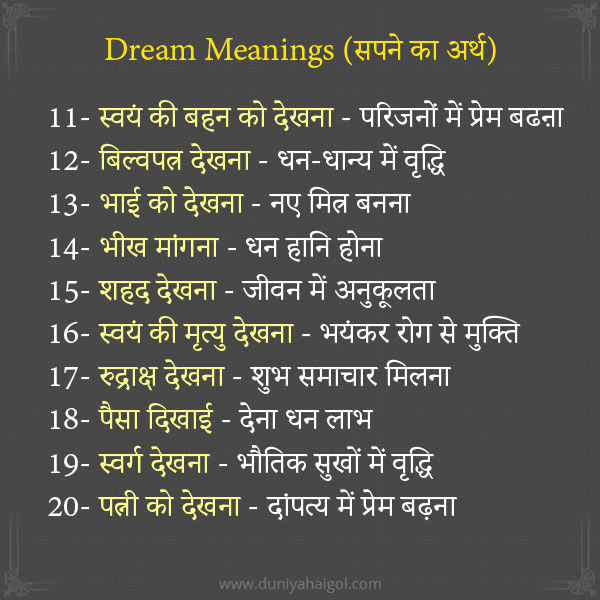

This doesn’t mean that dreams can’t suggest certain concerns, drives, or preoccupations, but they don’t lend themselves to being “decoded.” As a result, they don’t adhere to any recognizable logic. This scientific approach asserts that dreams occur as our brain replays events that occurred throughout the day-but that they are random, unquantifiable, and inconsistent. As such, a dream may be full of references to forgotten childhood memories and point toward deep-seated truths about the self. Based on concepts developed by psychoanalyst Sigmund Freud, this approach considers the possibility that dreams are reflections of our subconscious. When it comes to decoding dreams, you might focus on one of two approaches:

Because dreams are fleeting, intangible, and often truly bizarre, interpreting them is as much an art as it is a science.


 0 kommentar(er)
0 kommentar(er)
